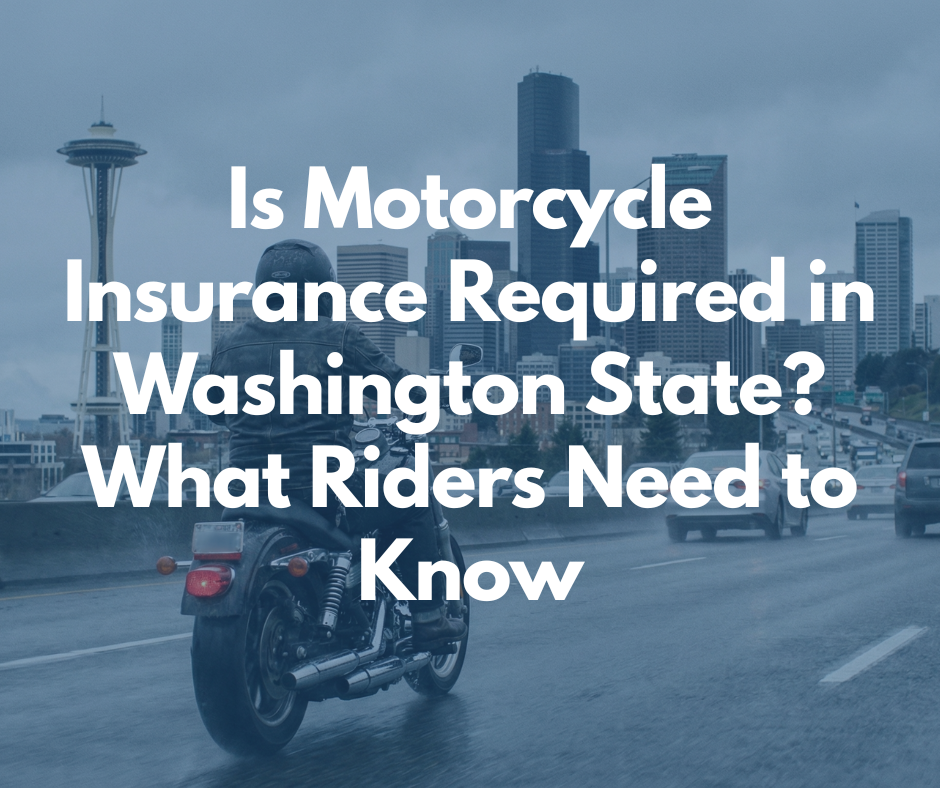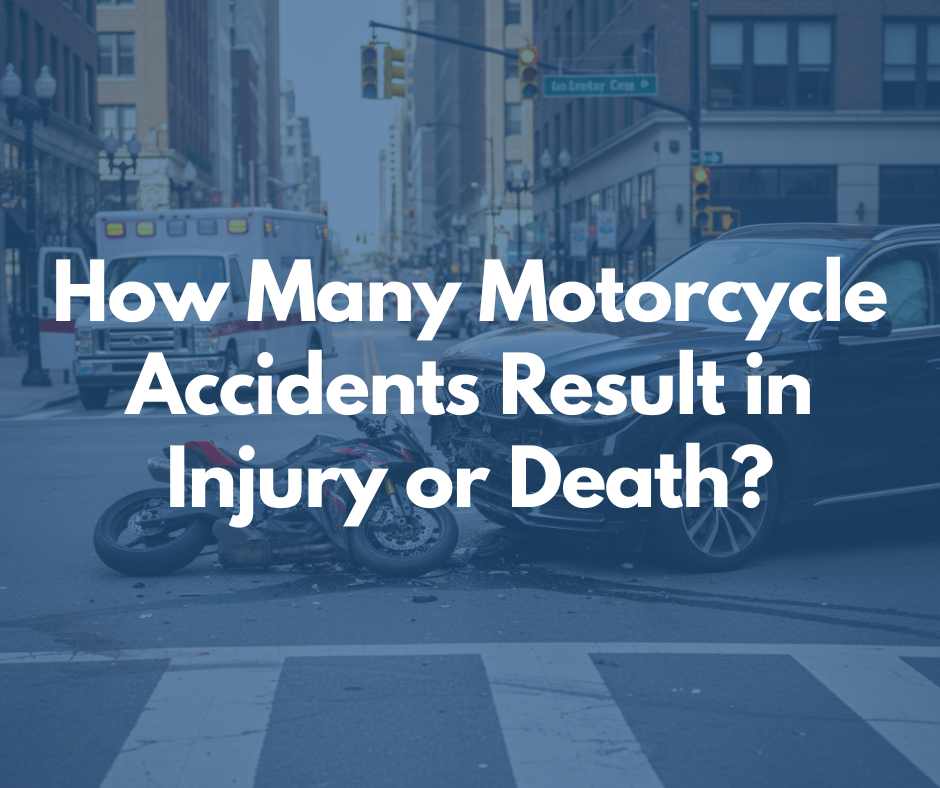
TL;DR: Key Takeaways
- Motorcycle accident injuries are almost always more severe than car crashes because riders have zero protection when impact happens
- The most common injuries include traumatic brain injuries, spinal cord damage, broken bones, road rash, and internal bleeding
- Many injuries don't show symptoms right away, which is why getting checked out immediately after a crash is critical
- Insurance companies routinely lowball or deny motorcycle injury claims based on bias against riders
- An experienced motorcycle injury lawyer protects your rights and fights for compensation that actually covers your recovery
There's no such thing as a minor motorcycle crash. When you go down, it's not just the bike that gets damaged. Your body takes the hit, and sometimes your mind does too. We've seen this play out hundreds of times, and we know how much it changes everything. As a partner at Metier Law Firm and a rider myself, I've spent years representing injured motorcyclists while understanding firsthand what it means to be out there on two wheels.

Because I’m a rider that’s out on the road regularly on my Harley Davidson, I understand the risks that come with being on two wheels. But what most people don't realize is how much worse those risks become when another driver makes a careless move. Whether you're dealing with broken bones, psychological damage after the crash, or facing months away from work, the aftermath hits hard and doesn't let up.
This guide breaks down the most common motorcycle accident injuries, what they mean for your future, and why having an experienced lawyer matters when you're trying to recover and get the compensation you deserve.
Why Motorcycle Injuries Hit Different
The biggest difference between a motorcycle crash and a car accident comes down to one thing: exposure. We don't have seatbelts. We don't have airbags. There's no protective frame around us. When something hits you on a bike, your body absorbs the force directly.
That reality is why motorcycle accident injuries are almost always more serious than what happens in car crashes. Even a low-speed collision can cause life-changing damage. Good riding gear helps reduce severity, but it can't eliminate the risk entirely.
After a wreck, riders face more than just physical pain. There's lost income, emotional trauma, and medical bills that pile up fast. These financial pressures compound quickly, especially when motorcycle injuries require long-term treatment or stop you from working altogether.
The Most Common Injuries After a Motorcycle Crash
Traumatic Brain Injuries
Head trauma and traumatic brain injuries can happen whether you're wearing a helmet or not, and it ranges from mild concussions to severe, permanent cognitive damage. Symptoms include persistent headaches, memory loss, confusion, mood changes, and trouble concentrating. Many riders don't fully recognize traumatic brain injuries until days or weeks after the crash, when early intervention opportunities have already passed.
Spinal Cord Injury and Paralysis
Back and neck trauma happens frequently in motorcycle crashes. In severe cases, this results in spinal cord injury or complete paralysis. These injuries typically require surgery, intensive rehab, and often lifelong medical care.
Road Rash and Deep Tissue Damage
Road rash happens when your skin makes contact with pavement during a crash. Severity ranges from surface scrapes to deep wounds requiring skin grafts. Infection risk is high, especially if wounds aren't cleaned and treated right away. Many riders underestimate road rash treatment needs. The recovery can be long and emotionally tough, particularly when scars remain visible.
Broken Bones and Fractures
Most riders sustain at least one bone fracture in a crash. Arms, wrists, collarbones, legs, and ribs are the most common sites. Severe breaks often require surgery with metal plates, screws, or rods, followed by months of physical therapy. Multiple fractures make recovery timelines significantly longer.
Internal Organ Damage and Internal Bleeding
Blunt force trauma from impact can cause internal bleeding and damage to vital organs including the lungs, liver, spleen, and kidneys. What makes internal organ injuries particularly dangerous is that you can't see them. Serious damage can develop without obvious external signs, which is why prompt medical evaluation matters regardless of how you feel right after impact.
Crush Injuries and Amputation
In high-impact collisions, limbs can get trapped between the motorcycle and other objects, resulting in crush injuries. These can cause permanent nerve damage, loss of function, or amputation. Riders who sustain this level of trauma face lifelong physical, psychological, and lifestyle changes.
Psychological Damage After Crashes
Not all motorcycle injuries are physical. Many riders experience PTSD, anxiety, or depression following a crash. Symptoms include fear of riding, nightmares, hypervigilance in traffic, and emotional withdrawal. These psychological injuries are as real and disabling as broken bones, yet they're often overlooked in initial assessments.
The Long-Term Reality of Motorcycle Crash Recovery
Motorcycle accident injuries typically involve extended recovery periods, and many result in permanent disability. The physical pain is only one part of the challenge. Riders also face:
Financial Burden
Ongoing medical costs, surgeries, rehab, and potentially lifetime care requirements that add up rapidly.
Employment Disruption
Missed work during recovery, potential job loss due to disability, and reduced earning capacity if injuries create functional limitations.

Functional Limitations
Reduced mobility, chronic pain, decreased strength, or loss of fine motor control that restricts daily activities and independence.
Mental Health Impact
PTSD, anxiety, depression, and identity struggles as riders work to reclaim their sense of self.
Lifestyle Changes
Fundamental shifts in how you engage with work, family, hobbies, and the independence that riding represents.
These outcomes reshape your present while limiting your future. Strong legal claims must account for both the economic damages and the profound personal losses that define your actual experience.
What to Do Right After a Motorcycle Injury
Once your immediate medical needs are handled, here’s what you should do next:
Document Everything
Photograph the crash scene from multiple angles, your injuries, and vehicle damage. Get contact information from witnesses and request police report details.
Get a Complete Medical Evaluation
Internal organ injuries and traumatic brain injuries can emerge days after impact. Keep detailed records of all medical visits, diagnostic results, and treatment recommendations.
Don't Give Recorded Statements to Insurance Adjusters
Insurance companies employ specialists trained to minimize payouts. Any statement you provide will be scrutinized for language that reduces liability or damages.
Track All Expenses
Document lost wages, medical transportation costs, prescriptions, medical equipment, home care services, and any other crash-related expenses.
Talk to a Motorcycle Injury Lawyer Immediately
Early legal help protects your rights, prevents evidence loss, and positions your case for maximum recovery. Insurance companies act differently when they know competent legal representation is involved.
If you've been hurt in a crash and need answers, call us at 866-377-3800 or schedule a free consultation at www.metierlaw.com.
Why You Need a Motorcycle Injury Lawyer
Motorcyclists face bias from insurance companies. We've seen injured riders wrongly blamed for crashes they didn't cause. We've watched legitimate claims get lowballed or denied outright based on prejudice against riders.
At Metier Motorcycle Lawyers, our motorcycle accident lawyers know this landscape.
When you work with experienced motorcycle injury lawyers, you get:
Thorough investigation. We reconstruct the crash, gather evidence from multiple sources, and identify liable parties that insurance companies might overlook.
Accurate damage calculation. We work with medical specialists and economists to quantify both current and future damages, including lifetime care costs, lost earning capacity, and psychological impact.
Aggressive negotiation. We understand insurance company tactics and leverage points. We present compelling cases that demand serious settlements.
Trial readiness. If negotiation fails to produce fair compensation, we prepare cases for litigation with the same intensity we'd bring to the courtroom.
Full value advocacy. We fight for compensation that genuinely reflects the complete impact of motorcycle accident injuries on your life. Not what insurance companies initially offer.
This isn't about quick settlements. It's strategic advocacy for your future.
Frequently Asked Questions About Motorcycle Accident Injuries
What are the most common injuries in motorcycle accidents?
The most common motorcycle accident injuries include traumatic brain injuries, spinal cord injury, bone fractures (especially arms, legs, and collarbones), road rash, internal organ injuries with internal bleeding, and psychological damage like PTSD. Lower extremity injuries to feet and legs are particularly common because they often take the brunt of impact when a bike goes down.
Can I still recover compensation if I wasn't wearing a helmet?
Yes. While helmet laws vary by state (Colorado, Washington, Oregon, Wyoming, and Nebraska each have different requirements), not wearing a helmet typically doesn't prevent you from recovering compensation if someone else caused the crash. Insurance companies may try to argue comparative negligence, but an experienced motorcycle injury lawyer can counter these tactics and protect your claim.
How long does it take to settle a motorcycle injury claim?
There's no standard timeline because every case is different. If liability is clear and motorcycle injuries are well-documented, you might reach a settlement in a few months. However, if the insurance company fights your claim or you need to go to court, it could take a year or longer. Working with a motorcycle injury lawyer from day one helps move the process along and prevents delays that benefit insurance companies.
What if the other driver doesn't have insurance?
You may still have options through your own uninsured motorist coverage, which can help cover medical bills and motorcycle repairs. Beyond that, a motorcycle injury lawyer can explore other avenues for compensation depending on your specific situation. Don't assume you're out of luck just because the at-fault driver lacks insurance.

Should I accept the first settlement offer from the insurance company?
No. Initial settlement offers are almost always lower than what your case is actually worth. Insurance companies count on injured riders accepting quick payouts before they understand the full extent of their motorcycle accident injuries and long-term costs. Always consult with a motorcycle injury lawyer before accepting any settlement offer.
We Ride, We Represent, We Fight
We ride. We understand the freedom of the open road and the devastation when a crash happens. We've felt the rush of a good ride and the pain of seeing fellow riders go down. We do this work because riders and their families deserve expert representation when they're most vulnerable.
Across Colorado, Washington, Oregon, Wyoming, and Nebraska, Metier Motorcycle Lawyers have been fighting for injured riders who've been hurt through no fault of their own. Whether you're facing traumatic brain injuries, spinal cord injury, road rash, broken bones, or psychological damage from a crash, we know what it takes to build a strong case and secure real compensation.
If you're recovering from a motorcycle crash, you don't have to handle this alone. Let us manage the legal strategy, insurance negotiations, and documentation while you focus on healing — physically and emotionally — whether you're in Denver, Portland, Seattle, Omaha, Cheyenne, Fort Collins, Colorado Springs, or Casper.
Call Metier Law Firm’s motorcycle lawyers today at 833-4Moto-Law (833-466-8652) or schedule your free consultation today at www.metierlaw.com.
Disclaimer: Past results discussed should not be considered a guarantee of your results as the factors of every case are individually unique. This content is for informational purposes only and does not constitute legal advice. Consult a qualified attorney from Metier Law Firm regarding your individual situation for legal advice.
If You've Been Injured In A Motorcycle Crash, Call Today - (833) 4MOTO-LAW
Tell Us About Your Case – Free Case Review with a Personal Injury Lawyer
(866) 377-3800Our Locations
.webp)
Do I have a Case?
How Much Should I Be Offered?
Do I Need an Attorney?
If these questions have crossed your mind, let us help. You may need a little direction or may not need an attorney at all, but you deserve to be confident knowing your options. We can provide you with information about our Attorneys of the West® accident investigations and legal services. Your confidential consultation with us is totally free.
Keep up with us!

.svg)




